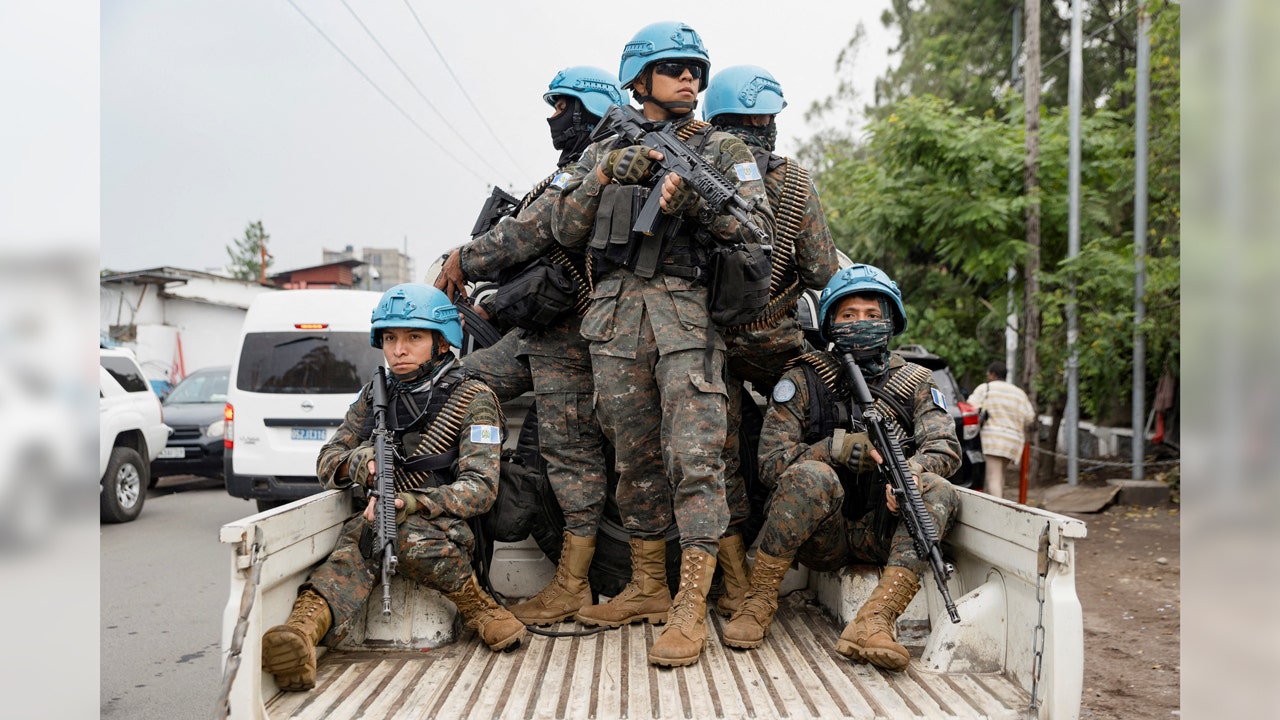13 UN peacekeepers, allied soldiers dead in Congo as M23 rebels make gains in key city

The ongoing conflict between the Rwanda-backed rebel group M23 and Congolese government forces in Congo’s key city of Goma has escalated, leading to the evacuation of the international airport and causing significant disruptions in the region. The M23 rebel group, comprised mainly of ethnic Tutsis who separated from the Congolese army over a decade ago, has been making territorial gains along the border with Rwanda, posing a threat to the stability of Goma, a city with a population of approximately 2 million.
The United Nations Secretary-General António Guterres has called on M23 to immediately cease all hostile actions and withdraw its forces, emphasizing the need for a peaceful resolution to the conflict. The international airport in Goma was evacuated, and commercial flights were temporarily grounded, as the fighting between rebels and government forces intensified, resulting in the deaths of at least 13 peacekeepers and foreign soldiers. Thousands of civilians have been displaced as a result of the violence, further exacerbating the humanitarian crisis in the region.
The Congolese Foreign Ministry announced the severing of diplomatic ties with Rwanda and the withdrawal of all diplomatic staff from the country in response to the escalating conflict. Rwanda has denied backing the rebels but has acknowledged the presence of its troops and missile systems in eastern Congo to safeguard its security interests. The United Nations Organization Stabilization Mission in the Democratic Republic of the Congo (MONUSCO) has been actively involved in securing the evacuation of non-essential staff and providing support to mitigate the impact of the conflict on civilians.
As the situation remains volatile, with heavy gunfire echoing across Goma and displaced individuals seeking refuge in neighboring countries, there is a pressing need for a coordinated international response to address the root causes of the conflict and prevent further escalation. The U.N. Security Council is set to convene an emergency meeting to address the crisis and explore options for restoring peace and stability in the region.
Despite the challenges posed by the ongoing conflict, efforts to protect civilians, uphold human rights, and promote dialogue between warring factions must remain a top priority for the international community. The plight of displaced individuals, including women and children, underscores the urgent need for humanitarian assistance and protection in the face of escalating violence and insecurity. It is imperative that all parties involved in the conflict prioritize the well-being of civilians and work towards a peaceful resolution to end the cycle of violence and instability in the region.




